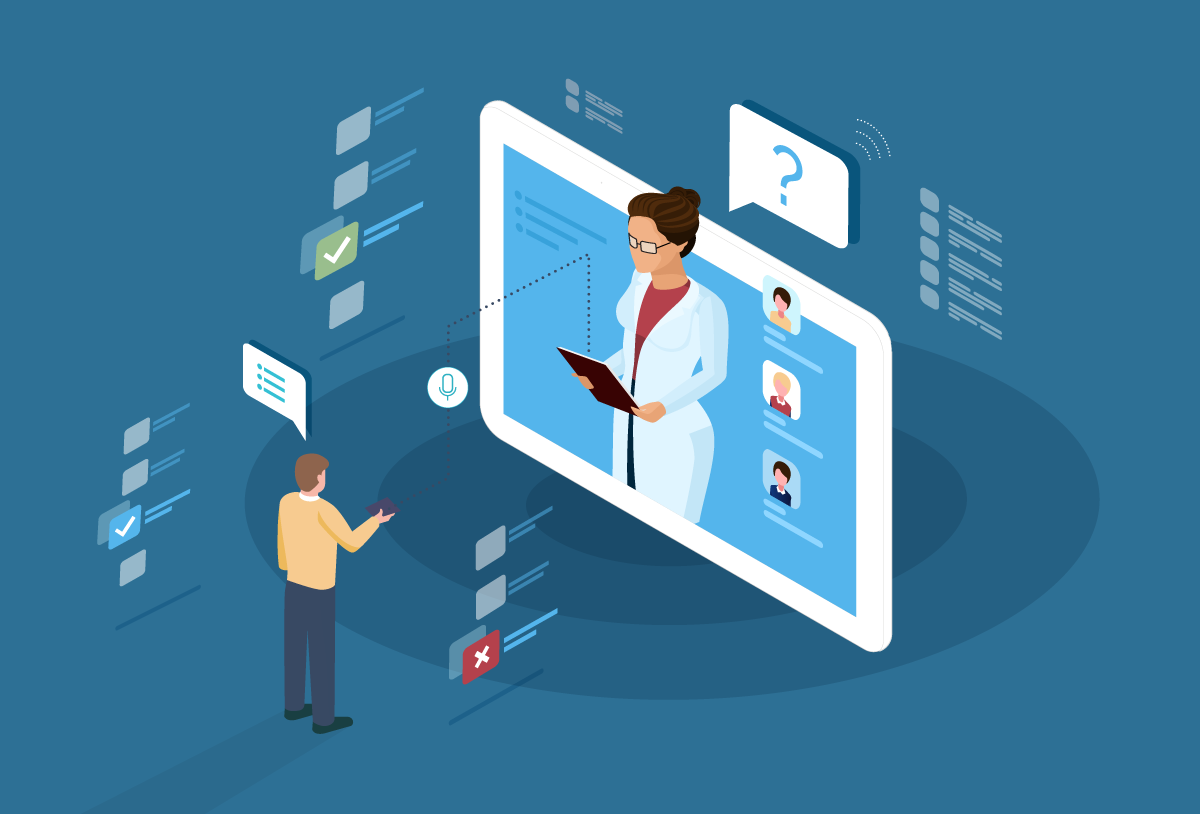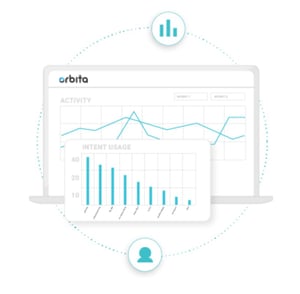
Automate Patient Satisfaction Surveys Through Voice and Chat with Orbita
 Patients are increasingly selective in where they receive their care, and therefore patient satisfaction is more important now than ever. However, administering patient surveys through email and post letters is burdensome and inefficient. Today, many healthcare providers are looking for ways to improve patient satisfaction and automate the process of collecting patient feedback.
Patients are increasingly selective in where they receive their care, and therefore patient satisfaction is more important now than ever. However, administering patient surveys through email and post letters is burdensome and inefficient. Today, many healthcare providers are looking for ways to improve patient satisfaction and automate the process of collecting patient feedback.
Why focus on patient satisfaction?
1) The results from a patient satisfaction survey help identify gaps and issues within the healthcare experience. Patient satisfaction typically represents the level of service rather than the technical aspects of a care journey. This feedback will highlight the level of efficiency, competence, and courtesy in the care journey.
2) Better health outcomes are correlated with better care experiences. The results from patient satisfaction surveys have surfaced trends showing that patients with more positive experiences are more likely to effectively self-manage care - and this includes adherence to medical plans and at-home health monitoring.
3) Satisfied patients help cultivate a strong reputation and loyal patient network. It is estimated that the loss of one patient due to dissatisfaction could cause a practice to miss out on over $200,000 in the long run. Additionally, a dissatisfied patient is much more likely to share their experience with others, which means that it is essential for providers to maintain quality relationships with their patients to continue retaining and acquiring patients.
4) Patient satisfaction surveys are a large factor used in Medicare and Medicaid's Value-Based Purchasing program. This program rewards practices that actively improve and excel in the quality of the care they provide to patients enrolled in Medicare and Medicaid programs.
What are the current Challenges with patient satisfaction surveys?
 Today, these surveys are often administered as letters in the mail or electronically via email. This method of delivery limits how a patient can provide feedback and is also not very engaging. By providing a variety of ways for patients to provide input, health systems are better able to capture valuable insights.
Today, these surveys are often administered as letters in the mail or electronically via email. This method of delivery limits how a patient can provide feedback and is also not very engaging. By providing a variety of ways for patients to provide input, health systems are better able to capture valuable insights.
Sending a text message that launches a chatbot, for example, allows you to dynamically adapt to the patient’s answers on the spot, ask clarifying questions, provide responses to questions, and even connect them with a live representative to solve specific challenges. This same experience can be replicated to a landline or analog phone to be delivered via voice. If a patient does not respond right away, the core technology allows for cascading notifications, (SMS, email, phone call) that increase the opportunity for engagement with high-touch automation.
While patient satisfaction surveys have wide-spread and frequent use, there is still some conjecture on how exactly to measure satisfaction and if change should be driven by subjective metrics. The point of contention largely lands on defining satisfaction since results could represent attitudes, emotions, feelings, or perceptions.
In 2006, the Hospital Consumer Assessment of Healthcare Providers and Systems Survey or (HCAHPS) was introduced to standardize the questions regarding patient satisfaction. It has evolved through the years to become a comprehensive list of 27 items that cover the critical elements and touchpoints in a patient’s care journey. While standardization of surveys is key to collecting consistent actionable data; for HCAHPS scores, the ability to subjectively and dynamically respond to the patient's real-time feedback creates a high-touch experience in and of itself.
Orbita Platform as a solution
Orbita’s goal is to advance these surveys even further into the digital world with the use of virtual assistants. Orbita’s platform automates the process of creating, deploying, and analyzing these surveys. With an intuitive drag and drop interface, healthcare providers are better supported with the architecture of specific polls, surveys, and other assessments. Additionally, leveraging Orbita’s design techniques such as branching and conditional questions allows for the further customization of the experience, enabling patients to feel seen and heard in real time as the assessment adapts dynamically.
The process of stratifying and scoring results is completely automated with Orbita’s platform. The omni-channel approach to data collection from natural language interfaces such as web, phone, SMS, voice assistants like Amazon Alexa and Google Assistant enhance the patient’s experience as they provide feedback.
The power of conversational technology allows for a personalized feedback experience. As a patient responds to questions, the dynamic nature of the survey feels more customized to them and responds to their concerns at first touch (not to mention, also provides a degree of trust from the experience). Nothing is worse than taking time to provide feedback about an unsatisfactory experience than if it doesn’t go anywhere and nothing is done about it. Providing a conversational context shifts the real-time tenor of feedback.
 Beyond the creation and deployment of these surveys, Orbita can collect and store responses in a HIPAA compliant data repository. From here, the data can be compiled to create aggregate-level reports to share trends and areas of improvement with front line workers. Collecting patient feedback is one thing, but using it to create actionable change requires work from every level within a healthcare system.
Beyond the creation and deployment of these surveys, Orbita can collect and store responses in a HIPAA compliant data repository. From here, the data can be compiled to create aggregate-level reports to share trends and areas of improvement with front line workers. Collecting patient feedback is one thing, but using it to create actionable change requires work from every level within a healthcare system.
With the power of voice and chat, Orbita’s platform can set your healthcare system up to enact innovative and progressive solutions that target improved patient experiences.

